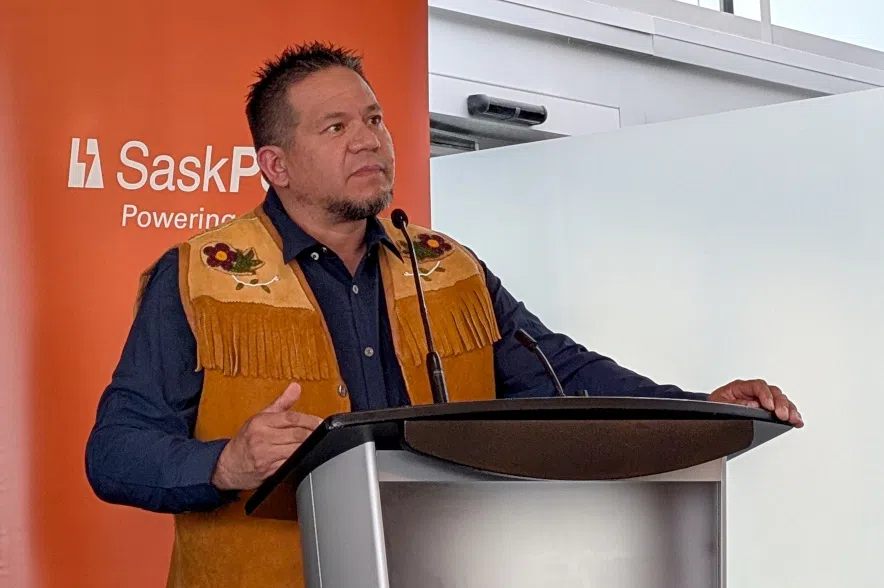Calls for better health care in Saskatchewan are nothing new — whether it’s talk about overcrowded hospitals in Regina and Saskatoon, or a lack of doctors in the rural south — and now northern Saskatchewan is joining in the call.
Tribal Chief Jeremy Norman of the Meadow Lake Tribal Council, which represents nine First Nations with 18,000 people, said his communities want better access to basic health care.
Read more:
- Sask. NDP calls for an end to virtual health care in emergencies
- ‘People are struggling’: CUPE health-care workers call for better wages
- Weyburn pharmacy pilot aimed at improving access to mental health care
Norman pointed to those who need dialysis, which is one treatment the tribal council is concerned about.
The Meadow Lake Dialysis Unit is usually full so people have to drive to another one, usually in Saskatoon, Norman said, so if they’re driving from Canoe Lake, it’s an hour and a half to Meadow Lake, then another three hours to Saskatoon.
“Three times a week — three to five hours driving one way — your quality of life, there’s not much there,” he said.
Norman said the council also wants long-term care in First Nations communities, which is something he’s been advocating for a while now.
“You don’t see long-term health facilities in the northern First Nations communities — you can see them in smaller centres and rural centres with less population than some of our First Nations, but you don’t see any on First Nation lands,” he said.
Norman said it would be a good way for their people to live out the rest of their days comfortably and with some of their own culture, as well as a way to create jobs.
A long-term care home is being built in La Ronge, but Norman said that’s about five hours away from Meadow Lake.
“If you want to visit your loved one, five hours is a long way,” said Norman.
He said the tribal council would also like treatment beds in the north, places where their people can get into a bed quickly and not have to travel so far.
Health care on First Nations can be a complicated issue — responsibility lies with the federal government generally but specific issues can turn into quagmires, with a 2018 House of Commons report calling it “complicated and ambiguous”.
This week, the NDP’s critic for First Nations and Métis relations, Leroy Laliberte, brought the concerns to the provincial legislature.
Laliberte said health care has been lacking in the north. He said services aren’t there, the roads to get to where the services are aren’t in any good shape and more doctors and health-care workers are needed.
“Under this Sask. Party government it’s been 18 years that the north has been neglected with these services. They need these services today, we can’t keep neglecting the people of Northern Saskatchewan, it’s important for them to receive the services when they need them,” said Laliberte.
Health Minister Jeremy Cockrill said his government has been working hard to improve access to health care for everyone in the province, including in the north and that it’s been working on recruiting staff in northern Saskatchewan.
“Something that I think we want to do more of is do more training in the north as well, whether that’s through Northlands College, whether that’s through the Saskatchewan Indian Institute of Technologies — this is a huge opportunity that we have,” said Cockrill.
He mentioned the long-term care facility in La Ronge, work that’s being done to upgrade the EMS facility in Beauval and that the dialysis centre in Meadow Lake is being expanded.
“It’s all about being in the communities, understanding what their needs are — we’re always available to meet with northern leadership, hear directly from them on what the challenges are and then try and work together on what a solution is,” said Cockrill.
Norman said he’s had conversations with government about his concerns and it’s something the council plans to continue working on.
He said there’s been some indication of programs that might fit but they need to sit down with government to work it out, “we haven’t been told ‘no’ yet,” he said.











